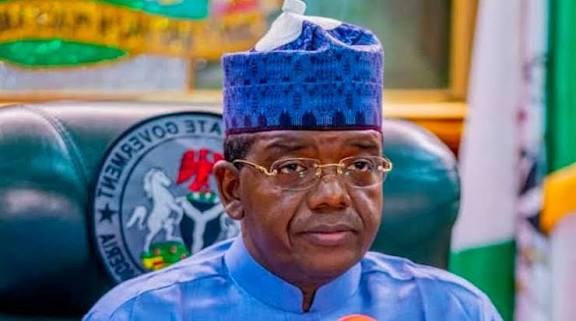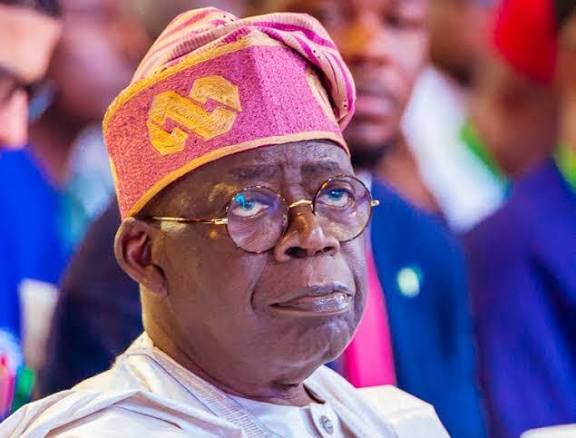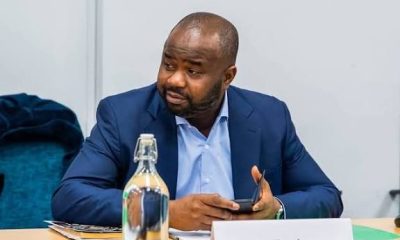News
Expert Advocates Comprehensive Support Hub for Special Needs Kids

By Hadiza Usman
A leading therapist and the founder of Live Well Home Therapy, Dr Isaac Bamidele Stephen has called for the establishment of a one-stop market for children with special needs in Nigeria.
This initiative aims to provide comprehensive support and resources to address the myriad of challenges faced by these children and their families.
The renowned child therapist and advocate for special needs children, who made the call in an interview with Special Needs News in Abuja, also highlighted the pressing need for a centralised hub where families can access a wide range of services.
“The current fragmented approach to care is inadequate. Parents often struggle to navigate the complex system of support, from diagnosis to therapy, education and social services. A one-stop market would streamline this process, ensuring that the necessary resources are available in one place.”
Dr Stephens proposal includes the integration of medical services, including diagnosis and treatment, therapeutic services such as speech, occupational and physical therapy, as well as educational support tailored to the unique needs of each child
He added that the market would offer social services, including counseling and support groups for families and access to specialised equipment and educational materials.
“The benefits of a one-stop market are manifold. It would not only alleviate the burden on parents, but also ensure that children receive consistent and quality care. This holistic approach is essential for their development and integration into the society.”
Parents of special needs children in Nigeria often face significant challenges, from societal stigma to limited access to specialised care. Many families are forced to seek services from multiple providers, often traveling long distances and incurring high costs. A centralised facility would mitigate these issues, offering a more efficient and cost-effective solution.
The therapist called on government to prioritise this initiative, emphasizing the long-term benefits to the society. “Investing in our children is investing in our future. By supporting special needs children, we are fostering a more inclusive and equitable society.”
He also urged private sector involvement, highlighting the potentials for public-private-partnerships in funding and sustaining the market. “There is a critical role for businesses and philanthropists to play. Together, we can create a supportive environment that enables every child to reach their full potentials.”
The proposal has garnered support from various advocacy groups and parents. Mrs Blessing Joshua, a mother of a child with autism, expressed enthusiasm. “This is a game-changer. Navigating the current system is exhausting and disheartening. A one-stop market would provide the much needed relief and hope for many families like mine.”
As discussions continue, Dr Stephen remains optimistic about the prospects of realising this vision. “It is a bold step, but a necessary one. With collective efforts, we can make a lasting impact on the lives of special needs children in Nigeria.”
The call for a one-stop market marks a significant milestone in the advocacy for special needs children, highlighting the urgent need for comprehensive, accessible and integrated support services in Nigeria.
The achievements of the Nigerian Paralympic team reaffirm the country’s strength in para-sports and signal a bright future for its athletes in international competitions.
News
Activists confess receiving N500m Naira to blackmail Tinubu’s Minister Matawalle, beg for forgiveness

Five civil society activists and media operatives on have openly confessed to being part of a N500 million coordinated blackmail campaign against the Minister of State for Defence, Dr. Bello Mohammed Matawalle, and tendered an unreserved public apology to him.
The activists, led by Comrade Aryan Abdul Kareem, made the shocking revelation at a press conference in Gusau, the Zamfara State capital.
Speaking on behalf of Comrade Olumu Lucky, Comrade Olukayode Williams, Comrade John Osumbor Mark, and Engineer Bashir Muhammad, Kareem disclosed that the entire operation was sponsored and supervised by the administration of Governor Dauda Lawal Dare through his Spokesperson, Sulaiman Bala Idris.
According to the group, Sulaiman Bala Idris personally convened several secret meetings where they were briefed, handed instructions, and provided with funds.
The campaign, they said, cost “above five hundred million naira” and involved recruiting social media influencers, bloggers, political commentators, conventional media houses, and prominent Zamfara politicians including Senator Kabiru Marafa and Sani Abdullahi Shinkafi.
“We were part of that machinery. We accepted money and roles to circulate damaging and false narratives against Dr. Bello Matawalle even though we knew they were lies. We chose financial inducement over conscience,” Kareem admitted.
The activists said their actions caused “serious emotional pain, reputational damage and distress” to the Minister, his family, and supporters, adding that after deep reflection, they decided to come clean.
“Today, we tender our unreserved apology to His Excellency, Dr. Bello Mohammed Matawalle, and to every Nigerian who was misled by the falsehood we helped spread. We beg for his forgiveness and the forgiveness of the public. This apology is born out of genuine remorse,” the statement read.
The group further declared readiness to face any legal or moral consequences, stating that they possess “documentary evidence” of every transaction and meeting, including with Governor Lawal’s Spokesperson.
“We are ready to submit all the evidence and cooperate fully with the EFCC, DSS, police or any competent authority that wishes to investigate this matter,” they affirmed.
While urging other participants in the alleged plot to also confess, the activists said their decision was aimed at cleansing their conscience and helping to enthrone truth and accountability in Nigerian politics.
News
Security Agencies Uncover Plot to Stage Protest Against President Tinubu, NSA Ribadu

Nigeria’s security agencies have reportedly uncovered a plan by some opposition politicians to organise protests in Sokoto and other northern states against President Bola Tinubu and National Security Adviser Nuhu Ribadu.
Fresh intelligence reports made available to journalists on Friday show that former Senator Kabiru Marafa is the main arrowhead of the plot.
The group is allegedly working to discredit NSA Nuhu Ribadu and the Minister of State for Defence, Bello Matawalle, by falsely linking them to bandit groups and using a Sokoto-based militia to trigger violent protests.
Sources say the Zamfara State Government, led by Governor Dauda Lawal, is strongly backing the plan and providing funding, determined to paint the federal security team as incompetent and force the removal of both Ribadu and Matawalle.
Security operatives detected the scheme this week, monitored several planning meetings in Gusau and Abuja, blocked funding channels, and quietly disrupted the operation.
No arrests have been made, but all the key figures are now under close surveillance.
The key figures are now being monitored by security agencies to track their key sources of funding.
News
Security Agencies Uncover Plot to Stage Protest Against President Tinubu, NSA Ribadu

Nigeria’s security agencies have reportedly uncovered a plan by some opposition politicians to organise protests in Sokoto and other northern states against President Bola Tinubu and National Security Adviser Nuhu Ribadu.
Fresh intelligence reports made available to journalists on Friday show that former Senator Kabiru Marafa is the main arrowhead of the plot.
The group is allegedly working to discredit NSA Nuhu Ribadu and the Minister of State for Defence, Bello Matawalle, by falsely linking them to bandit groups and using a Sokoto-based militia to trigger violent protests.
Sources say the Zamfara State Government, led by Governor Dauda Lawal, is strongly backing the plan and providing funding, determined to paint the federal security team as incompetent and force the removal of both Ribadu and Matawalle.
Security operatives detected the scheme this week, monitored several planning meetings in Gusau and Abuja, blocked funding channels, and quietly disrupted the operation.
No arrests have been made, but all the key figures are now under close surveillance.
The key figures are now being monitored by security agencies to track their key sources of funding.
-

 News3 months ago
News3 months agoCSOs fault DAPPMAN’s ₦75 per litre coastal freight cost demand
-

 Uncategorized1 month ago
Uncategorized1 month agoParacetamol Use in Pregnancy Doesn’t Cause Autism, New Study Confirms
-
Uncategorized3 months ago
Consumer Forum Urges FG, DSS to Investigate Desperate Efforts by PENGASSAN to Shut Down Dangote Refinery
-

 News3 weeks ago
News3 weeks agoBreaking: FBNQUEST: Nestoil and Neconde are not under any receivership
-

 News3 months ago
News3 months agoCSOs To Tinubu: Hold DAPPMAN, Labour Unions Responsible For Breakdown Of Law, Order
-

 News1 month ago
News1 month agoCoalition Backtracks, Apologises To FIRS Chairman Adedeji Over False Allegations
-
News1 month ago
NGO Empowers 150 Girls with Disabilities in FCT to Promote Inclusive Education
-

 Uncategorized2 months ago
Uncategorized2 months agoSowore and Divisive Anti-Democratic Forces Must Be Stopped; Enough is Enough-ACN



